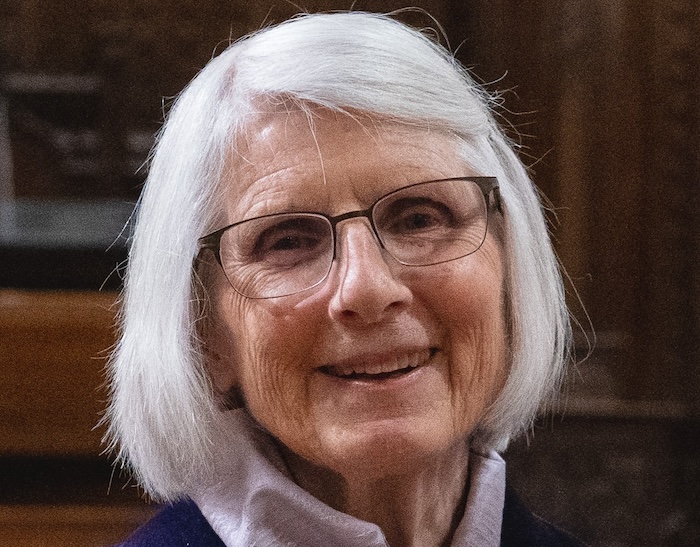Clara Longstreth, who lives in Philipstown, is retiring as musical director of the New Amsterdam Singers in New York City after leading the chorus for 57 years. She will conduct her final concert on May 16. See nasingers.org.
How did you come to direct the chorus?
In 1968 it was being conducted by a man named Allan Miller who left for another job. I was the assistant conductor, in which I did nothing, but it was enough for them to ask me to take over. It was called the Master Institute Chorus, after the building where we rehearsed. In 1971 we regrouped as the New Amsterdam Singers and were associated with the Bloomingdale House of Music [now the Bloomingdale School of Music]. After we became independent in 1978, we found a place that is the right size, a good location, decent acoustics, and that’s the Broadway Presbyterian Church on 114th Street. We’ve been performing there for a long time.
Where did your interest in singing come from?
When I was a student at Harvard, the Radcliffe Choral Society was a big part of my life, in the way that non-academics sometimes become more important than your academics. I spent a year as an apprentice music teacher at Milton Academy [in Massachusetts], and then for seven years I was the music teacher at the Riverdale Country School for Girls [in the Bronx]. I majored in government rather than music — my parents were Quakers, so I wanted to save the world — but I learned a whole lot in that job.
You commissioned 16 choral pieces. What is that process like?
Usually it is a composer whose works you’ve sung. You ask if he has time, then you ask how long it will be, or you tell him how long you would like it to be. Based on that, he tells you how much he will charge, which is roughly $1,000 per minute. For our most recent commission, I asked the composer, Philip Lasser, for secular music — we sing a lot of religious music — and he began looking for 13th-century love poetry. He didn’t find anything he liked but came across an abecedary, which is a method for poets [each line begins with a letter of the alphabet, in order] but also an instruction manual for kids learning to read in which you have couplets for each letter. His piece went from eight minutes to 16 minutes because when you’re on your way from A to X, you can’t leave something out. Mercifully, he did not ask for more money. Also, I asked for it to be in French because he is French American and I love the language. That was a little bit selfish and mean of me because we had to put the singers through language study. But French people in the audience said it sounded French.
Do you have any favorite performances?
That’s hard to answer. It’s easier to say what repertoire I was overwhelmed with. There is a Swiss composer named Frank Martin [1890-1974] who wrote beautiful choral music. We’ve sung Golgotha by him and some lovely songs. They’re favorites of mine and of the singers but not well-known to audiences.
What is the toughest task for a chorus?
It’s a cappella — no instruments — because the singers must have a sense of the harmony in their inner ear and listen to each other and stay in tune so they end the piece in the same key that they started. If they go flat — which is what choruses do more than going sharp — they might end up in a slightly different key. That’s not the end of the world, especially if everybody goes down a little bit together. As a conductor, if you are going to a certain place that has been a problem, you can make a lifting gesture, a reminder, the same as when you mouth the words of certain texts you want to bring out. You can show a lot in your face.


